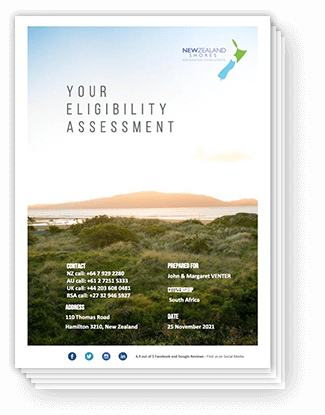Salaries in New Zealand
How do New Zealand salaries compare?
What is the average salary in New Zealand? New Zealand wages vary greatly by industry and we also record regional variations: as a guideline, salaries are higher where the cost of living and housing is dearer.
The median income in New Zealand is NZ$33.56/hour as of 18 August 2025 as of August 2025 (NZD$69,804.80) per annum based on a 40-hour week). There is also a minimum wage in New Zealand under which you cannot be paid legally.
Are you eligible to move to New Zealand? Take our assessment!
Salary proportional to qualification level
Your level of qualification will have a big effect on how much you can get paid in New Zealand with a Bachelor’s degree reported to earn up to 40% over the average income. The higher the qualification, the more you will earn. However, the subjects you studied, your work experience, the demand for your skills in New Zealand, and how well you can negotiate your entry salary will have an effect too. For instance in 2016, the highest paid Bachelor degree holders were in medical fields. The most successful diploma holders were in engineering. Getting a New Zealand qualification may also give you the leading edge in your search for skilled employment.
Research to determine your expectations
It is important to fully research the expected rates of salary for your given skills and work experience. It is also important to look into the cost of living in New Zealand which is generally considered high compared to the salaries offered. The trade-off is well recognised as the lifestyle that New Zealand brings and the environment to raise your children. Generally speaking, the average salary is lower than that of the UK and US, but being an average, some sectors do offer comparable salary rates.
Consider the other benefits
Your job offer may include non-monetary benefits
Many New Zealand companies offer more non-monetary benefits to their employees when compared with businesses in other countries. Company cars, company telephones, paid meals or fitness centre registrations are all often included in remuneration packages. Paid annual leave, however, may be slightly less than is common in the UK, with the average being 20 days per year. Another important point to note is that salaries are negotiable, to an extent, and most businesses do not advertise remuneration packages in job advertisements, so it will help to do your research beforehand to get an idea of what you should expect, or what you think you are worth. New Zealand Shores offers assistance and advice on your likely salary and the additional benefits that you can negotiate for each position.
The highest paid jobs are…
The highest paid sectors in New Zealand over the last 5 years have been mining, electricity, gas and water supply, finance and information technology. In particular, employment positions in IT sales, digital architecture, and financial controlling regularly rank as the highest paid jobs in the country, along with doctors. The lowest paid jobs in New Zealand, relative to qualifications and experience, are all in the services sector, with hotel receptionists, waiters/waitresses and bar staff regularly being rated right at the bottom of the scale.
Salary guide as at April 2022 (source: Trademe). Average per industry:
- Accounting $82k
- Agriculture, fishing & forestry $60k
- Architecture $81k
- Automotive $65k
- Banking, finance & insurance $85k
- Construction & roading $72k
- Customer service $53k
- Education $62k
- Engineering $80k
- Executive & general management $116k
- Government & council $82k
- Healthcare $64k
- Hospitality & tourism $54k
- HR & recruitment $83k
- IT $124k
- Legal $81k
- Manufacturing & operations $54k
- Marketing, media & communications $80k
- Office & administration $57k
- Property $80k
- Retail $54k
- Sales $71k
- Science & technology $84k
- Trades & services $61k
- Transport & logistics $58k
To find out more information, please refer to the Government’s Careers website, the MBIE, Trademe, and Seek.
Keen to explore New Zealand?
Get your free eligibility assessment
We are serious about privacy.
The information you provide is secure and is only used to assess your enquiry.




